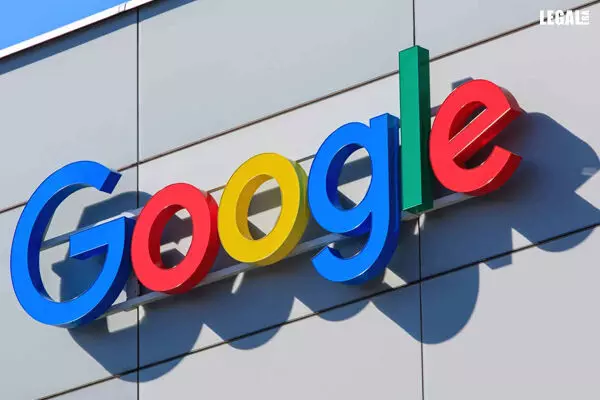- Home
- News
- Articles+
- Aerospace
- Artificial Intelligence
- Agriculture
- Alternate Dispute Resolution
- Arbitration & Mediation
- Banking and Finance
- Bankruptcy
- Book Review
- Bribery & Corruption
- Commercial Litigation
- Competition Law
- Conference Reports
- Consumer Products
- Contract
- Corporate Governance
- Corporate Law
- Covid-19
- Cryptocurrency
- Cybersecurity
- Data Protection
- Defence
- Digital Economy
- E-commerce
- Employment Law
- Energy and Natural Resources
- Entertainment and Sports Law
- Environmental Law
- Environmental, Social, and Governance
- Foreign Direct Investment
- Food and Beverage
- Gaming
- Health Care
- IBC Diaries
- In Focus
- Inclusion & Diversity
- Insurance Law
- Intellectual Property
- International Law
- IP & Tech Era
- Know the Law
- Labour Laws
- Law & Policy and Regulation
- Litigation
- Litigation Funding
- Manufacturing
- Mergers & Acquisitions
- NFTs
- Privacy
- Private Equity
- Project Finance
- Real Estate
- Risk and Compliance
- Student Corner
- Take On Board
- Tax
- Technology Media and Telecom
- Tributes
- Viewpoint
- Zoom In
- Law Firms
- In-House
- Rankings
- E-Magazine
- Legal Era TV
- Events
- Middle East
- Africa
- News
- Articles
- Aerospace
- Artificial Intelligence
- Agriculture
- Alternate Dispute Resolution
- Arbitration & Mediation
- Banking and Finance
- Bankruptcy
- Book Review
- Bribery & Corruption
- Commercial Litigation
- Competition Law
- Conference Reports
- Consumer Products
- Contract
- Corporate Governance
- Corporate Law
- Covid-19
- Cryptocurrency
- Cybersecurity
- Data Protection
- Defence
- Digital Economy
- E-commerce
- Employment Law
- Energy and Natural Resources
- Entertainment and Sports Law
- Environmental Law
- Environmental, Social, and Governance
- Foreign Direct Investment
- Food and Beverage
- Gaming
- Health Care
- IBC Diaries
- In Focus
- Inclusion & Diversity
- Insurance Law
- Intellectual Property
- International Law
- IP & Tech Era
- Know the Law
- Labour Laws
- Law & Policy and Regulation
- Litigation
- Litigation Funding
- Manufacturing
- Mergers & Acquisitions
- NFTs
- Privacy
- Private Equity
- Project Finance
- Real Estate
- Risk and Compliance
- Student Corner
- Take On Board
- Tax
- Technology Media and Telecom
- Tributes
- Viewpoint
- Zoom In
- Law Firms
- In-House
- Rankings
- E-Magazine
- Legal Era TV
- Events
- Middle East
- Africa
Federal Judge Rules Google Won't Face Jury Trial In US Digital Ads Case

Federal Judge Rules Google Won't Face Jury Trial In US Digital Ads Case
A federal judge ruled on Friday that Alphabet's Google will not face a jury trial over its alleged Dominance in Digital Advertising, following the company's Payment of $2.3 million to cover the U.S. Government's Claim of Monetary Damages.
By paying the monetary damages, Google avoids a jury trial as non-monetary demands are typically heard directly by judges in antitrust cases. The company had previously stated that this would have been the first-ever jury trial in a civil antitrust case filed by the U.S. Justice Department.
Last year, the Justice Department and a coalition of states filed a lawsuit against the tech giant, alleging unlawful monopolization of digital advertising and overcharging users. The primary objective of the lawsuit is to break up Google's digital advertising business in order to foster more competition.
U.S. District Judge Leonie Brinkema in Alexandria, Virginia, made the ruling on Friday and scheduled the non-jury trial for Sept. 9, when she will hear arguments to decide the case directly.
Google has denied Wrongdoing and Clarified that it was not admitting Liability by Submitting a Damages Payment. In a statement on Friday, the company emphasized, "DOJ's contrived damages claim has disintegrated," characterizing the case as a "meritless attempt to pick winners and losers in a highly competitive industry."
A spokesperson for the Justice Department declined to comment.
Last Month, Google revealed that the Government, which had Initially Claimed more than $100 million in Damages, requested less than $1 million. Google's $2.3 million payment accounts for interest and the potential for damages to be tripled under U.S. antitrust law.
Last month, Google accused the federal government of fabricating its monetary damages claim to secure a jury trial.
In response, the Justice Department stated that it was willing to resolve the Monetary Damages aspect of its case, but only if Google made a Larger Payment.
"Google has fought hard to keep its anticompetitive conduct shielded from public view," the government told Brinkema last month



